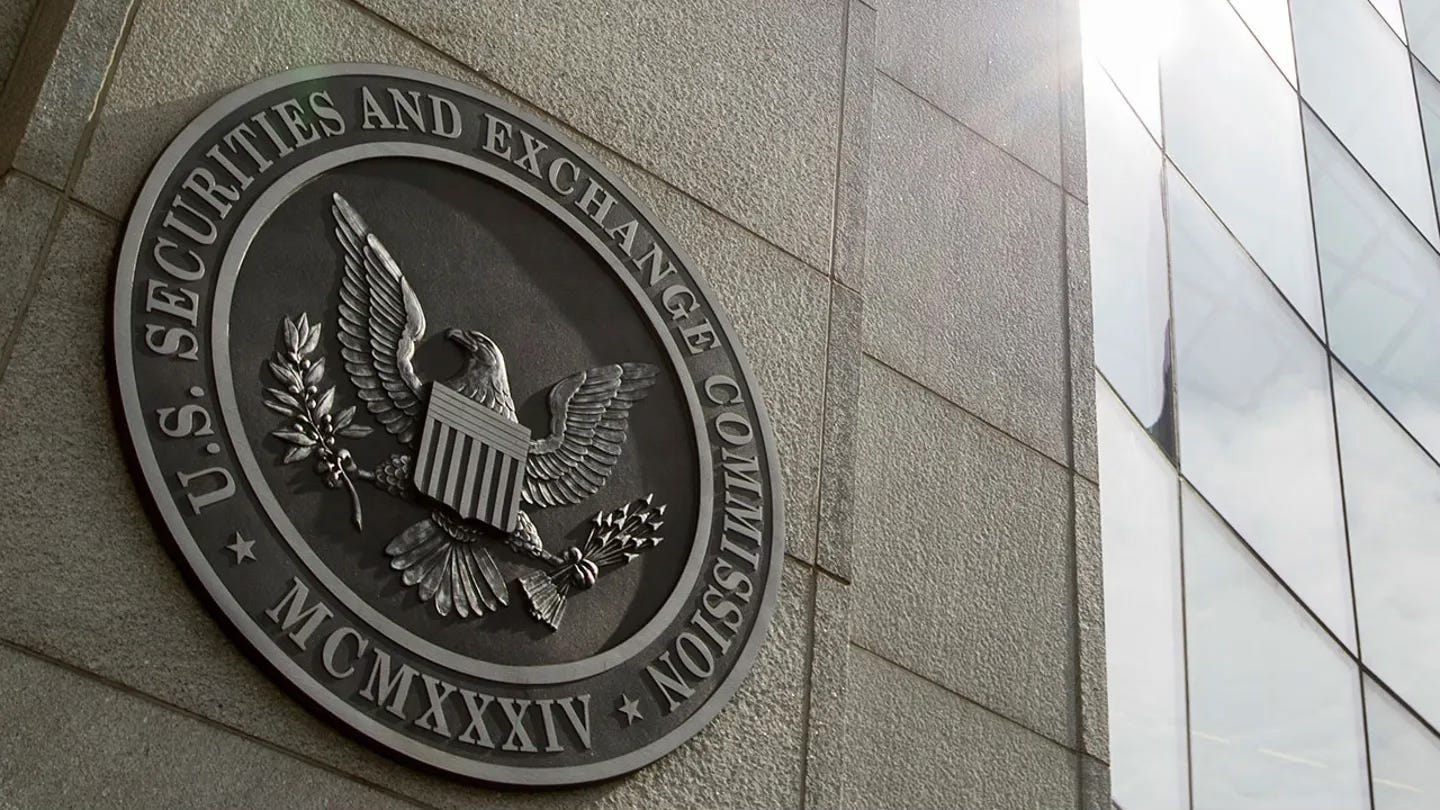Andreessen, DEF Push SEC for Safe Harbor to Protect DeFi Developers
Proposal to Commissioner Peirce seeks to exempt non-custodial app builders from broker-dealer rules
Welcome to the Wednesday edition of the Crypto In America newsletter!
What you’ll read: DeFi safe harbor proposal lands at the SEC, Paolo Ardoino details Tether’s U.S. expansion plans.
One of the world’s most prominent venture capital firms and the leading DeFi advocacy group are teaming up to urge the Securities and Exchange Commission to draw a line in the sand: building neutral blockchain interfaces doesn’t make software developers brokers.
In a proposal to the head of the agency’s Crypto Task Force, Commissioner Hester Peirce, Andreessen Horowitz and the DeFi Education Fund call for a formal safe harbor so that front-end developers of non-custodial DeFi apps, NFT marketplaces, and wallet integrations are not forced into broker-dealer registration, a requirement they say makes no sense for software that never touches user funds.
The ask comes as Project Crypto, the agency’s roadmap for bringing U.S. markets on chain, is in the early stages of implementation and Senate lawmakers weigh proposals from advocates on how to approach DeFi in market structure legislation.
To qualify for the safe harbor, an app must be fully non-custodial, with users controlling their funds and signing every transaction. It cannot exercise discretion, though routers or solvers are allowed if they are objective, auditable, and not paid based on outcomes. The app cannot solicit or give investment advice and may only display neutral market data. It can only link to decentralized protocols that are autonomous, permissionless, non-custodial, and credibly neutral, with limited exceptions for early-stage projects.
“This proposal aims to be flexible to account for the ever-evolving nature of early stage tech development and is grounded in the understanding that most apps are fundamentally non-custodial, passive software tools that allow users to interact directly with public, decentralized network and protocol infrastructure - and, therefore, should not be subject to broker-dealer registration requirements,” said Amanda Tuminelli, Executive Director of DEF.
The stakes are high. Software developer Roman Storm’s conviction last week in the Tornado Cash case sent a stark warning: U.S. developers could face jail simply for building software that lets users interact with decentralized protocols, even when the code never touches funds. The proposal’s authors also cite past SEC actions, including the Coinbase Wallet enforcement case and Wells Notices to Uniswap Labs and OpenSea, which suggested similar app activity could be treated as unregistered brokerage.
“Developers deserve clarity, and our hope in submitting this proposal is to provide guidelines enabling them to build without fear of being scoped into unreasonable requirements that are misaligned with the realities of the technology,” Tuminelli said.
Andreessen and DEF caution that without clear safe harbors, the next generation of wallets, DeFi apps, and blockchain interfaces will move overseas, leaving foreign competitors to dominate the on-chain economy.
Inside Tether’s Push Into U.S. Markets
In our latest episode of Crypto in America, we sit down with Tether CEO Paolo Ardoino, who reveals the company’s strategy for its long-awaited push into the U.S. market.
Ardoino explains how Tether plans to position its new domestic stablecoin differently from its flagship USDT in emerging markets, offering a product that works more like a checking account than a dollar substitute and why that could pave the way for mainstream adoption. We talk timelines (with launch expected by year’s end), early branding plans, and how U.S. regulation, including the passing of the GENIUS Act, is shaping the rollout.
Ardoino also shares insights from his first-ever visit to Washington, D.C., where he met with lawmakers, regulators, and fellow crypto founders, offering a candid look at how Tether, once an unwelcome name in the capital, is navigating the political landscape ahead of its U.S. debut.
Watch the full episode on all platforms here.
Remember, new editions of the Crypto In America newsletter drop every Monday, Wednesday and Friday at 7AM EST.
If you like what you’re reading, don’t forget to subscribe!




